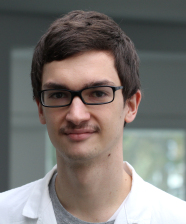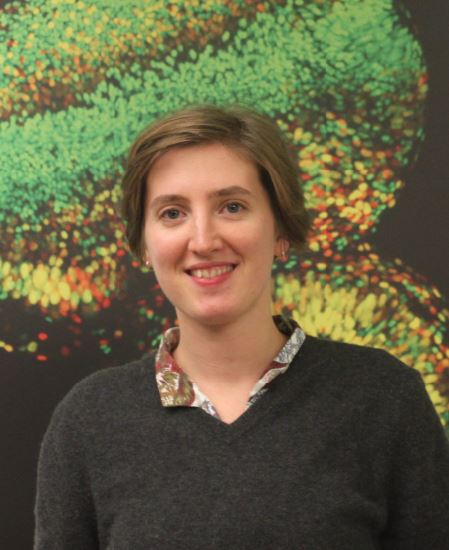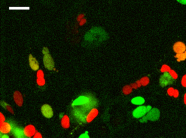Systems Biology Major | Prospective Students
Degree | Master of Science |
Title | MSc |
Master's Degree Name | Molecular Biosciences |
Major | System's Biology |
Accreditation | Accredited by the internal university accrediting procedures, which in turn are accredited by the Akkreditierungsrat |
Language | English |
Type | Full-time |
| Duration | 4 semesters |
| Credits | 120 ECTS |
| Tuition fees | 161.10 € / Semester |
| Faculty | Biosciences |
Why should you want to study Systems Biology?
Systems Biology is all about trying to get the big picture instead of focusing on one specific gene, protein or process. Therefore you need quantitative data, which you subsequently try to model. Next step is to check it again with new experimental data and fine-tuning the model, after which you will have figured out the relationships and biological function.In the Master you will combine both the experimental side and the modelling side. In the end you will be able to perform both kinds of science, even at the same time, although also several of our alumni focus on one of these types of research. However, because of your background, you know the right terminology and will be at home in both worlds.You should be pretty fond of modelling, math and even programming, but at the same time be able to perform experiments in a laboratory to get the quantitative data you need to feed to the models.
Why should you want to study it in Heidelberg?
In Heidelberg there is a major emphasis on systems biology research. There is the BioQuant, a research center dedicated to the ‘Quantitative Analysis of Molecular and Cellular Biosystems’, the faculty of Biosciences and the Interdisciplinary Center for Scientific Computing. Moreover, Heidelberg is an epi-center of life sciences research, with Heidelberg University, the German Cancer Research Center, the European Molecular Biology Laboratory and the Max Planck Institute for Medical Research all located here. This will give you ample opportunities to find exactly those topics that interest you. Moreover, it easily facilitates the next step in your scientific career, a potential PhD position. But also if you are not interested in a PhD, there are a lot of biotech companies looking for the skillset that you will acquire during your master’s degree. Especially the combination of laboratory experience, biological knowledge and modelling skills is sought after. Heidelberg University is a large university with 30.000 students, 12 faculties and a lot of learning opportunities. However, there are only around 12 students in the systems biology program each year, which leaves a lot of room for individual tutoring and a personal approach.
Career options?
Most of our graduates pursue a career in science and therefore continue with a PhD. However, there are also students who opt for a career in industry or in other professions. Especially the combination of biological knowledge, practical experience and programming and modelling skills is an interesting blend of skills.
Program
In total the program takes two years to complete, four semesters in total. In the first semester there are some general courses covering the basics of molecular biosciences and more specifically those of systems biology. In the second semester there are two courses focusing much more in depth on systems biology and several other accompanying techniques. During both these semesters there are several optional courses you can take covering mathematics and programming for instance. In semester three you have to do two labrotations in two different research groups here in Heidelberg, however you can also opt to go abroad and do them there. There is some funding available to cover part of the travel expenses. Then in the fourth semester you will have to write your master’s thesis with one of the research groups associated to the program.
For more in depth information about the different courses, please consult the ‘Current students’ page.
Admission and Application
You should hold a BSc or equivalent degree in any field of biosciences incl. biophysics. Since systems biology thrives on the interplay between experimental and computational approaches, you should possess an interdisciplinary interest and should be able to underline this point by your past studies, e.g. by track record that includes mathematical, IT-related or similar training.
Apply to the program here!
Experience of previous students
Lorenz Adlung
In my eyes, the major Systems Biology as a part of the Molecular Biosciences master's program at Heidelberg University offers a truly interdisciplinary curriculum. Lectures and hands-on courses about experimental techniques are complemented by computational modelling sessions. The combination of quantitative data generation with mathematical modelling approaches presents versatile possibilities to students of all backgrounds. The amalgamation of wet lab and dry lab work is certainly a mark of distinction for this unique teaching program, which enables steep learning curves within diverse research environments around the campus. Students are provided with guidance and the necessary degrees of freedom for pursuing an individual research career that is worth being considered.

Antonia Netzl
When I tell people I am studying Systems Biology, the first reaction often is an appreciative nod before the confession that they actually never heard of it. Before I started studying in Heidelberg, my idea of it was rather vague, too. Coming from a classic biological background, it was hard for me to imagine how to quantify biological processes based on experimental data. But by now, I realised that Systems Biology is so much more than that. It increases our understanding of biological processes in a unique way through finding underlying mathematical laws and connections. Here in Heidelberg I got introduced to an entirely novel area of biology, and although the amount of new knowledge was large, I never felt overwhelmed. This was certainly facilitated by the close contact to our teachers thanks to a small class size. I love the versatility of Systems Biology and am amazed by how much more it allows us to discover in biology.



